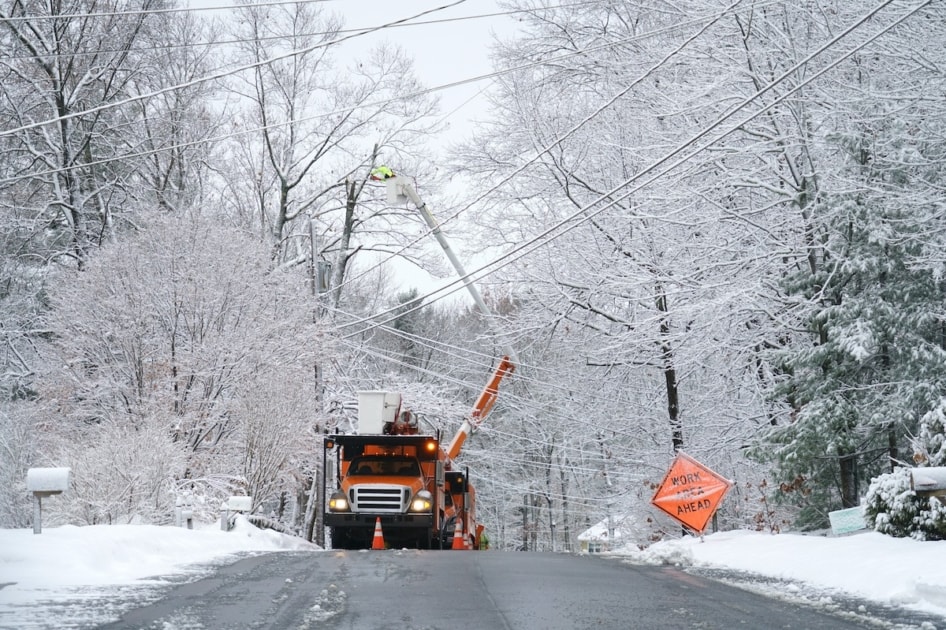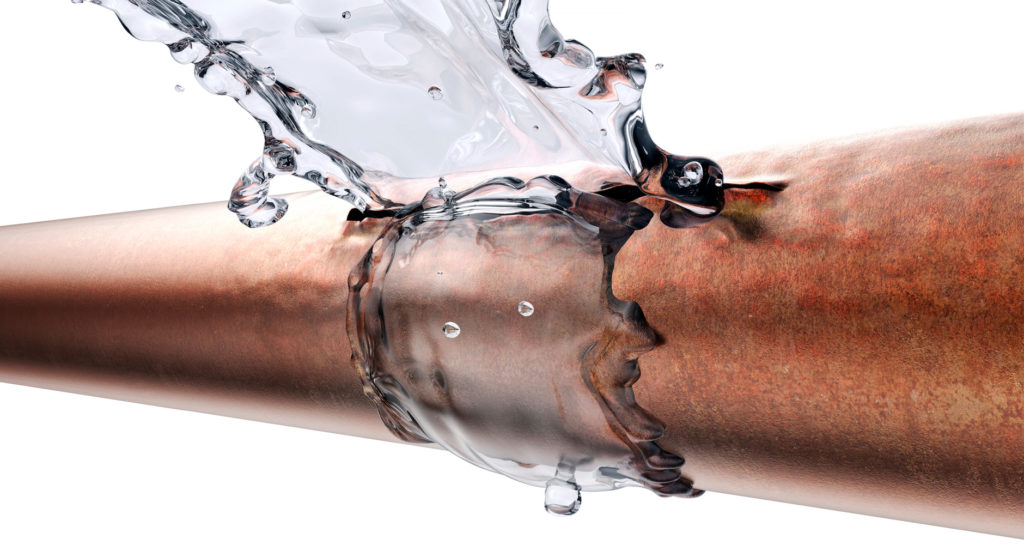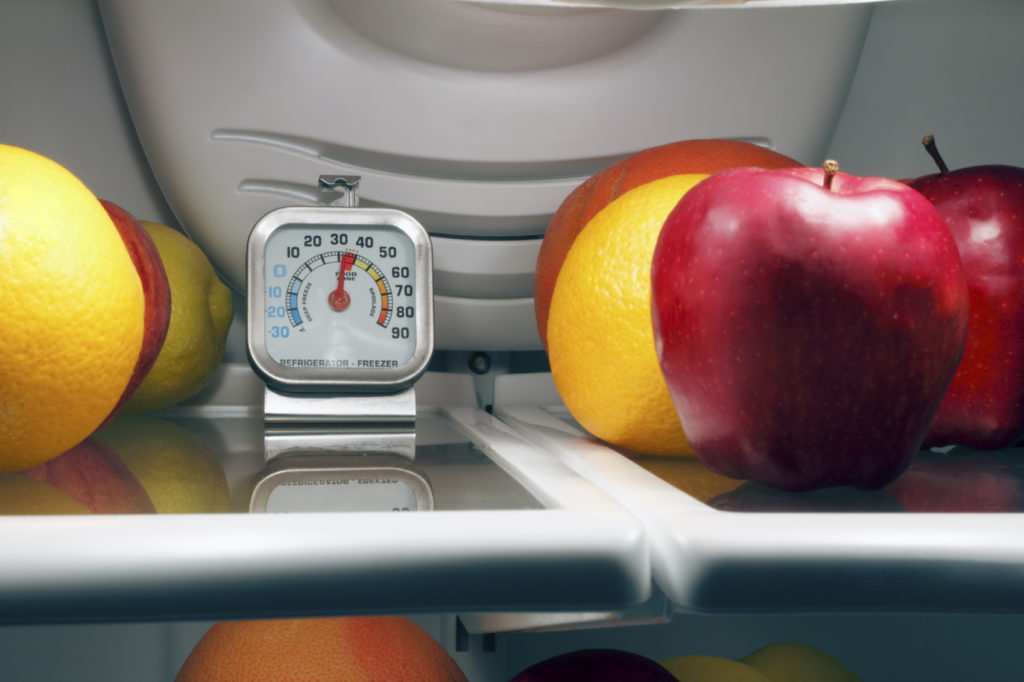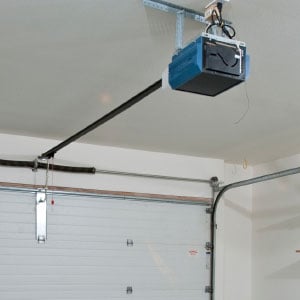Are You Prepared For Winter Power Loss?
Are you prepared in the event of a power outage? In the wintertime, they can be more than an inconvenience. Don't be caught off guard!

For most of the year, a power outage is usually a minor inconvenience, or even a welcome break from the relentless intrusion of technology into our lives. However, in the winter, when we rely on electricity for warmth, a power outage can become a serious problem.
It’s important to prepare in advance for the possibility of a winter power loss and to ensure the safety of yourself, your family, and your home. Here are some tips to help you stay safe:
Stocking Up

The best time to prepare is before winter weather sets in. Use the fall to check your supplies. Do you have a have a well-stocked supply of flashlights, candles, matches, spare batteries, a battery-powered radio, food, a camping stove with fuel, a manual can opener, bottled water, ample warm and dry clothing, blankets, a backup heating source, and sufficient heating fuel. Additionally, consider having puzzles, games, books, and other low-tech entertainment on hand for a welcome distraction, particularly if there are children or teenagers in the household.
Keeping Warm

If the power outage is brief, you might manage with your home’s residual heat, blankets, and several layers of warm, dry, loose-fitting clothing. Remember to wear a hat and, if temperatures plummet, mittens and a scarf for extra protection.
After a few hours, though, things may start to get uncomfortable, especially if the temperatures outside are exceptionally low. If your home is sufficiently weatherized, with adequate insulation, weather stripping around door, and good, energy-saving windows, it will take longer to reach this point. Eventually, though, even the hardiest will need to warm up with a fire or space heater. If you have a fireplace or woodstove, ensure that it is in safe working order. If you do not have a fireplace or woodstove, purchase a non-electric space heater and keep it in an accessible location. There are many varieties available, and most run on propane or kerosene. No matter what your emergency heating source is, be sure that you have enough fuel on hand to use it for several days if need be.
Read: What Not To Burn In Your Fireplace or Woodstove
While they can be a lifesaver, these forms of heating are also risky. Be sure to keep flammable materials well away from your heater or fireplace, and to properly ventilate the area so you don’t succumb to carbon monoxide poisoning.
The most efficient plan of action during an outage is to choose one room to heat, then seal off the rest of the house.
Preventing Burst Pipes

When a home loses heat, the most significant threat is to the plumbing system. Exposed pipes can easily freeze and burst, especially in rural areas that rely on well water. While city residents can leave a trickle of water running to prevent frozen pipes, homes with electric wells lack running water during an outage. The most effective and crucial step in protecting your pipes is to insulate them or wrap them in layers of newspaper covered with plastic wrap. If pipes freeze, remove the insulation, turn on all faucets, and pour hot water over the pipes, starting at the coldest areas. A camp stove can be used to heat the water if necessary. Alternatively, you can use melted snow if your home lacks running water. If you find frozen pipes once the power is restored, a hairdryer is an excellent tool for thawing them out.
Food Safety

If you know a bad storm is on the way, set your refrigerator and freezer to their coldest settings. If you do not open the doors during a power outage, the food inside of a full refrigerator will stay cold for up to 24 hours. Items in a packed freezer will stay frozen for 48 hours, or 24 hours if it is only half-full.
If the power outage lasts for more than a day, you can preserve perishable food by placing it in a cooler or burying it in the snow outside, as long as the temperature remains consistently below 40°F. In the absence of bagged ice, you can use snow to fill the cooler, but make sure it is protected from wildlife.
Other Considerations:
- If you suspect you’ll lose power, be sure you keep your phone charged. Keep the power cord in while using it.
- If you know your water doesn’t work without electricity, it’s a good practice to fill your (clean) bathtub with water before every big storm. That way, you’ll have water for washing and other necessities available throughout any outages. If you need to flush the toilet, but the well isn’t working, just pour a pail of water (bottled water, melted snow, or water from the bathtub) into the bowl to make it flush.
- If you have an electric garage door opener, make sure you know how to disable it so you can get in or out, if need be.
- It’s also a good idea to unplug appliances, such as computers, microwaves, TVs, DVD players, stereos, etc., to protect them against potential power surges once the electricity returns.
Power outages are both a nuisance and dangerous if you’re not prepared. Hopefully these tips will help keep you safe if you experience power loss.
Join The Discussion
After reading our article, do you feel prepared for winter power loss?
We hope so! Let us know what questions you may have in the comments section below!
Related
Easy yet effective ways to prepare your home for winter
10 warm weather power outage tips

Jaime McLeod
Jaime McLeod is a longtime journalist who has written for a wide variety of newspapers, magazines, and websites, including MTV.com. She enjoys the outdoors, growing and eating organic food, and is interested in all aspects of natural wellness.







As far as preps, water and heat are at the top of the list.
Just prior to a big, winter storm, purchase 1 gal containers of water and also fill large jars, or even stainless steel dutch ovens with water. Having “too much” is better than not enough.
A wood stove is the best source for reliable heat as long as you keep a good supply of firewood. If you can hunker down in a small room with a few candles or oil lamps, they will add some heat. Wearing warm clothing, especially wool, will keep you warm. Get a good, sub-zero sleeping bag and (again) wool blankets. A good comforter or duvet will also keep you warm. Wear more than one pair of socks. Bootie slippers are very warm and comfy.
After that, think foods that do not need to be heated or cooked in water. Canned foods, dried fruits (raisins, dates, etc.), nuts, crackers. Try to focus on foods that are high in protein and vitamins and minerals. If you want to cook something briefly indoors, a butane burner used in the open, unheated part of the home is helpful. If you have time, do some baking just before the storm so you can enjoy a loaf of bread, cake, muffins, pie, cookies, etc. Have lots of paper plates, cups, plastic cutlery so you don’t have to wash dishes. Use disposable aluminum pie plates, loaf pans, etc. to heat up food.
Hygiene is important. Have a good supply of baby wipes. Great if you cannot have a shower, etc. Also, try to have a shower, wash your hair, wash dishes, do laundry just before the storm arrives. Having disposable rubber gloves are good to have on hand.
Lots of batteries, lanterns, flashlights, battery or crank powered radio.
Always keep the gas tank in your car full even if it means more trips to the pump. Half a tank does not get you far. Always wear your warmest clothing, coats, boots, gloves, hats, etc. when you go out anywhere, even just to run errands. You never know if you could become exposed to the elements for any number of reasons and that warm clothing is so important.
There is so much more information. Check out different websites to get more ideas.
Know God and be obedient to Him.
can you use a gas grill for heat ?
Alex Cute: No, never. It needs to vent properly outside or it’s dangerous.
You must be certain to ground your generator frame. If not you are subject to being killed. I take two alligator clips and attached them to the ends of an extention cord. I suggest the best place to locate the generator is a the base of the incoming power to your home. You can clip the ground to the ground rod where your home electrical system is grounded .
Whether winter or summer outage, save up some large yogurt and Ricotta cheese containers. When a storm is on the way, fill them with water and freeze them. When power goes out, transfer most to ‘fridge and keep some in freezer. That will extend cooling time of each. Plus they could be used for a cooler to lessen opening of fridge and freezer. It works.
North central Ohio many days and nights well below zero I have had a portable 5000 watt gen. for many years, powers essentials via correct gage power cords.No problems this year “yet”. Toledo Edison does a super job in their maintaining lines and tree trimming.
During an ice storm -I had people tell me they used their outdoor solar lights at night inside for their lighting & put them outside during the day to rejuvenate. Another tip I read about was to use flower pots (2) smaller & large to fit over a metal loaf pan filled with 4 small tealights to make heat–2 -3 might make one room a little warmer–will last about 4 hrs..another helpful was to use a metal coffee container for cooking -use toilet paper w/o the cardboard middle & use the higher rubbing alcohol to soak the paper–put a metal rack on top to cook with–I’m not sure about cooking indoors with this-maybe outside but still it beats nothing..which we had during the ice storm..Thank goodness for my brother & his wife during this storm!
I was recently in a Johnson’s hardware store in western Washington and noticed several indoor propane heaters for sale. Must be something new as i’ve never seen them before.
My husband has sold these for years in Illinois. See a reputable propane dealer in your state for information.
Can you use a match and leave a natural gas oven open and on low to provide heat if needed?
Illianna – no, it is not safe to use a gas oven as a heat source.
Keep in mind there are gas heaters that are permanent fixtures to your gas line in the house. Mr Heater is a popular brand which we own one and placed on the wall in the basement under heat duct. Since heat rises it actually warms the house. Works without power! Most have electric blowers but not needed to run. They are ventless as well. Advice with them though while inexpensive its best to have a pro install it so its done correctly and safe.
Some of this is good information no matter what climate you are in. Summer outages here in AZ are as dangerous as the winter ones back home in VT. Food, Water, candles, good-old-fashioned lamp oil lamps-the glass kind (love ’em). Except the summer hot is hard to resist in a different way without electricity. Tie your house up tight either way… insulate, close gaps in windows, hold in (or out) as much heat as possible. And I say 2 gallons clean drinking water in your emergency kit (or 1/person or pet).
Yes, we are always well prepared. I will even make easy, healthy, carb and protien filled foods ahead of time that do well being heated up on the wood stove. We have a wood stove inthe basement to help with cold pipes and to heat the home from the frame/ground up as well as a wood stove in our first level. We go without power so much out here that I have a way of doing things when we know a storm is on the way. All laundry is washed, dried and put away (the first few years living here I ended up having to do laundry in big pots on my wood stove and hanging it). All my dishes are cleaned,dry and put away. I always have a huge stock of candles and platters to place them on for transort from room to room. We have a generator and have figured out how to use it to heat up our hot water in the tank and run the well pump. We always take a run to the gas station a few days before a predicted storm and fill up the tanks to run the generator. And last, because it takes so much fuel to run the gen to heat the water if we need it….everyone in the house gets a shower right before the storm hits. We have been without power for as much as two weeks straight to as little as a few hours. Almost always, we are prepared. One more thing we do, as well as the garage doors you mentioned…..anyone with a long drive way, if you ever think you may need to leave your yard, park a car AT THE END of the drive way so if trees or lines go down you can still get out. We learned that the hard way one year.
Well north tx don’t have to worry about that cause we didn’t have a winter. And not exspected to have a winter blast come through. Maybe next year
I never know if natural gas appliances still function during a power outage. I know my range has electronic ignition but if I can get it lit won’t if function as a source of heat if neccessary?
Linda,
Yes, a gas range will work in a power outage, as long as you light it with a match. It’s probably not a good idea to use it as a heat source, though, at least not in the long term. Huddling around it while you cook up a nice pot of soup or boil some water for tea or cocoa isn’t such a bad idea, though.
Just a though. A wind-up radio/flashlight can be operated for the duration without any batteries.
Question, How do you use a space heater in well ventillated area without lettin gthe cold air in? I think this should be described in greater detail. Most people don’t understand this concept and therefore several shelter in place survivalists die every year from CO poisoning.
Otherwise, good info. Thanks a lot.
Thank you, that was helpful
REALLY????????????????????